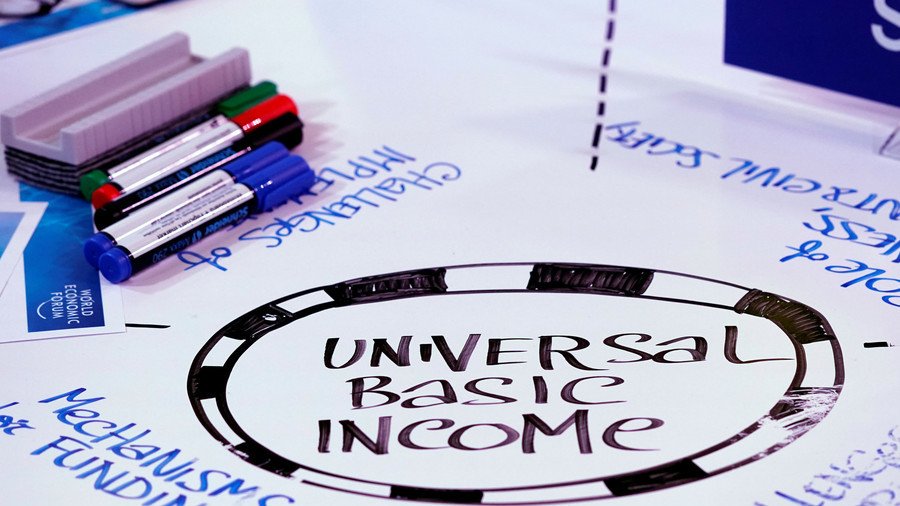Free cheese for Swiss? Hundreds sign up to get $2,500 a month under basic income trial

Some 600 people have enrolled in a private basic income experiment in Switzerland, less than a week after it was announced. The trial apparently aims to find out what the citizens are going to do if granted over $2,500 monthly.
Some 590 people in the Swiss town of Rheinau have reportedly agreed to receive a monthly universal basic income (UBI) of 2,500 francs ($2,570) for a year. The practical experiment needs 650 participants – half the population of Rheinau – before it can go ahead.
The woman behind the experiment, Rebecca Panian, says she needs minimum half of the town’s population to be involved before the project can move onto the fundraising stage. The 3 to 5 million francs needed for the 12-month experiment is going to be raised from crowdfunding or donations from institutions.
Participants who earn more than 2,500 francs will be required to repay any money received during the 12-month period. If the experiment goes ahead, Panian plans on documenting its progress with a team of researchers including sociologists, an economist and a media linguist.
The deadline from Panian’s experiment in September 17th, but only Rheinau residents who moved there before June 5th are eligible to take part.
The concept has been trialed recently in Finland, Canada, California, Spain, and Kenya. A Silicon Valley UBI experiment plans on giving 1,000 people, $1,000 per month for three years, and 2,000 thousand people $50 for five years.
READ MORE: £10,000 for millennials: Think tank’s radical plan to plug generational gap
Finland UBI experiment is scheduled to end next year, which pays $690 to 2,000 random, unemployed, Finns each month. The program was proposed as a possible solution to a record-high unemployment rate.
Switzerland overwhelmingly rejected the idea of a 2,500 francs UBI for all 8 million residents in 2016. Some said they basic income would free people to pursue more production or creative life goals, while critics argued it would cripple the economy and encourage less productivity.
Like this story? Share it with a friend!















